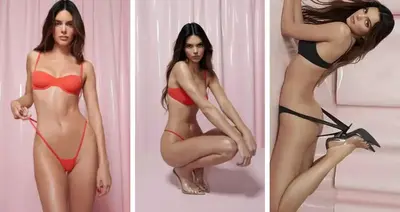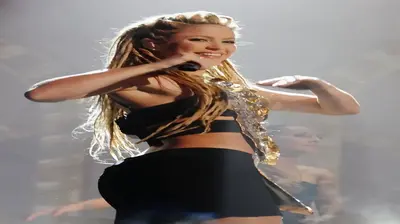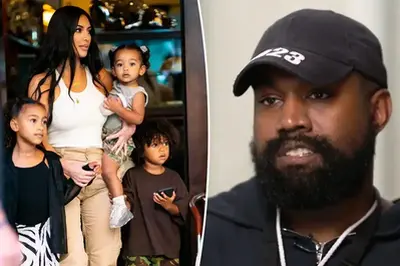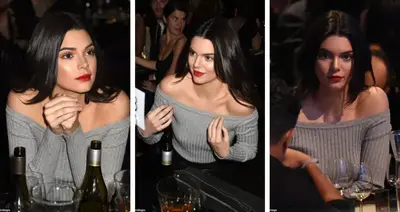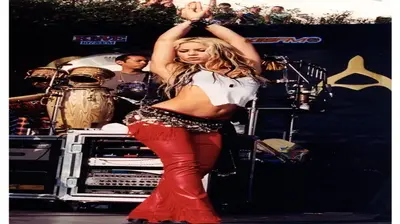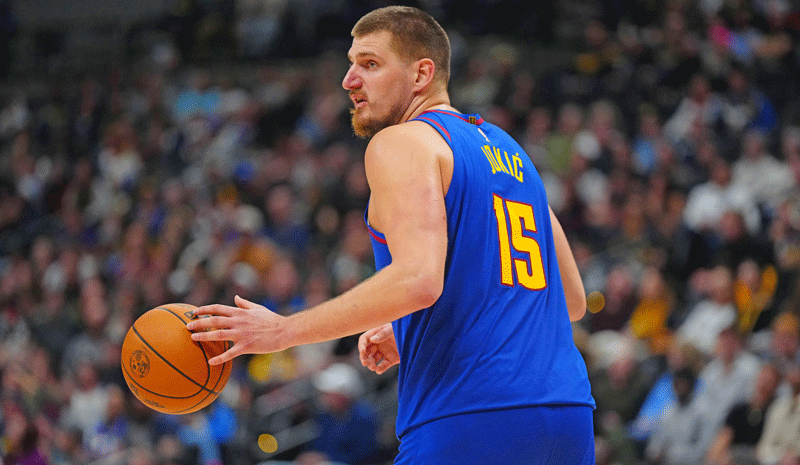Celebrity
Taylor Swift talks business
For the rest of Swift’s thoughts, including why she ditched streaming music service Spotify, how she writes a song and the media’s portrayals of women, here are excerpts from our conversations.
Why did you leave Spotify? I’m in an office of people who are upset they can’t stream your music.
Well, they can still listen to my music if they get it on iTunes. I’m always up for trying something. And I tried it and I didn’t like the way it felt. I think there should be an inherent value placed on art. I didn’t see that happening, perception-wise, when I put my music on Spotify. Everybody’s complaining about how music sales are shrinking, but nobody’s changing the way they’re doing things. They keep running towards streaming, which is, for the most part, what has been shrinking the numbers of paid album sales.

With Beats Music and Rhapsody you have to pay for a premium package in order to access my albums. And that places a perception of value on what I’ve created. On Spotify, they don’t have any settings, or any kind of qualifications for who gets what music. I think that people should feel that there is a value to what musicians have created, and that’s that. I wrote about this in July, I wrote an op-ed piece in the Wall Street Journal. This shouldn’t be news right now. It should have been news in July when I went out and stood up and said I’m against it. And so this is really kind of an old story.

What was the goal of your new album, 1989?
With 1989, I was really putting my neck on the line, because I was the one saying I need to change directions musically. And my label and management were the ones saying “Are you sure, are you positive? This is risky.” And I was the one who had to come back every time and say, “No, this is what we’re doing.” When I put forth an album cover that didn’t have half my face on it, and tried to convince my label that this was the best way to sell an album, you know, I got some kind of interesting side-glance looks. But I knew that this was the best cover to represent this record, because I wanted there to be an air of mystery. I didn’t want people to know the emotional DNA of this album. I didn’t want them to see a smiling picture on the cover and think this was a happy album, or see a sad-looking facial expression and think, oh, this is another breakup record. When I wanted to call the album 1989, people on the team questioned that. Every single element of this album has been called into question, and I’ve had to say “No, this is how we’re doing it.” And the fact that we came out and did the kind of numbers we did in the first week—you have no idea how relieved I was, because it was all on me if this didn’t work. It was a little hard to sleep the night of the album release.
There’s a song on my album called “All You Had to Do Was Stay.” I was having this dream, that was actually one of those embarrᴀssing dreams, where you’re mortified in the dream, you’re like humiliated. In the dream, my ex had come to the door to beg for me to talk to him or whatever, and I opened up the door and I went to go say, “Hi,” or “What are you doing here?” or something—something normal—but all that came out was this high-pitched singing that said, “Stay!” It was almost operatic. So I wrote this song, and I used that sound in the song. Weird, right? I woke up from the dream, saying the weird part into my phone, figuring I had to include it in something because it was just too strange not to. In pop, it’s fun to play around with little weird noises like that.
I am in love with catchy melodies and hooks that are stuck in your head for days, and ideally weeks, and even months. I really love it when I hear a song, and all of a sudden, my next two weeks are spent trying to figure out how to get that song out of my head. I think there’s a way to artfully do it. I want people to have songs that I write stuck in their heads, but I don’t want it to absolutely perturb them that they have the song stuck in their head. I’m talking about songs that sound like they were cooked up in a lab. Like, anything that makes you think there are eight songwriters on this.
A question about “Shake It Off,” the lead single: I had never read someone saying you stay out too late.
Oh, that was just a good first line. Yeah.
What does writing a song do for you?
I see a lot of celebrities build up these emotional walls around themselves, where they let no one in, and that’s what makes them feel very lonely at the top. I just keep writing songs. And I kind of stay open to feeling humiliated and rejected, because before being a quote-unquote Celebrity, I’m a songwriter. Being a Celebrity means you lock your doors and close your windows and don’t let people in. Being a songwriter means you’re very attuned to your own intuition and your own feelings even if they hurt.
So I approach it much more from a songwriter’s perspective. But I do know how to pull myself out now, from that constant, never-ending, bottomless rabbithole of self-doubt and fear. I’ve been able to write songs and feel better. They clarify and simplify the emotions that you’re feeling. Nothing you do is going to make the pain stop. It just helps to have it clarified and simplified
Is there someone you look to as a model of where you’d like your career to go? Are there women you look up to?
We’re taught to find examples for the way we want our lives to wind up. But I can’t find anyone, really, who’s had the same career trajectory as mine. So when I’m in an optimistic place I hope that my life won’t match anyone else’s life trajectory, either, going forward. I do have female role models in the sense of actresses like Mariska Hargitay. I think she has a beautiful life, and an incredible career, and I think she’s built that for herself. She’s one of the highest paid actresses—actors in general, women or men—on television, and she’s been playing this very strong female character for, what, 15 years now, something like that. And Ina Garten, the Barefoot Contessa. I really love her Business, and how she sticks to who she is, and how people relate to it. In other industries, I have female role models. I just struggle to find a woman in music who hasn’t been completely picked apart by the media, or scrutinized and criticized for aging, or criticized for fighting aging—it just seems to be much more difficult to be a woman in music and to grow older. I just really hope that I will choose to do it as gracefully as possible.
Is it a struggle, being a role model for so many young women while trying to produce something artistically valid?
I don’t find a struggle with that balance, being looked at as a role model, because I think it’s a very obvious and natural thing for people to see you as, when you’re a singer. I’ve always felt very comfortable with it, for some reason. That in particular hasn’t been one of my struggles. I’ve struggled with a lot of things, but the idea that you’re living your life and it’s impacting other people, some of whom are very young, some of whom are in their most impressionable times and they’re discovering the music that tells them how they are going to live their lives and how they should feel and how it’s acceptable to feel, I think that that’s kind of exciting.
But it’s the same thing as living your life based on what your grandkids will say one day. I’m sure there will be things that my grandkids make fun of me for no matter what, but I’d really rather it be, “Look how awkward your dancing was in the ‘Shake It Off’ video! You look so weird, Grandma!” rather than “Grandma, is that your nipple?” I don’t make it as much about the millions of people who would be disappointed if I were to have some sort of meltdown or Scandal or something that made everyone feel like my character wasn’t what they thought it was. I think more about the people in my life that would disappoint: my mom, my dad, my kids, if I ever have them. And that way it’s not as much pressure as thinking about the millions of little minds that you must be shaping. I’m trying to live my life with some sort of thoughtfulness put into my actions, but it’s not because I feel like I’m the president of the International Babysitters Club.
Does it annoy you when people say you don’t write your own songs, or that someone else is pulling the strings of your career?

I haven’t heard any of the people I respect in the music industry or in journalism, saying that they think I don’t write my own songs. I think, when I put out Speak Now, which was my third album, and I decided I was just going to write it entirely on my own, to me that was enough of a statement. I felt like I could move on from that. I felt like I had proved my point. That was when I felt free to collaborate with whoever I wanted, because if you actually listen to the music, you can tell that the lyrics are written by the same person. And it’s not a ghostwriter. It’s not some weird, you know—everyone’s got those weird Shakespeare theories that someone else did all his stuff for him. Not to ever compare yourself to Shakespeare. But people need to poke holes in things because of their own stuff. It’s not about me.
And we all know it’s a feminist issue. My friend Ed [Sheeran], no one questions whether he writes everything. In the beginning, I liked to think that we were all on the same playing field. And then it became pretty obvious to me that when you have people sort of questioning the validity of a female songwriter, or making it seem like it’s somehow unacceptable to write songs about your real emotions—that it somehow makes you irrational and overemotional—seeing that over the years changed my view. It’s a little discouraging that females have to work so much harder to prove that they do their own things. I see Nicki Minaj and Iggy Azalea having to prove that they write their own raps or their own lyrics, and it makes me sad, because they shouldn’t have to justify it.
-
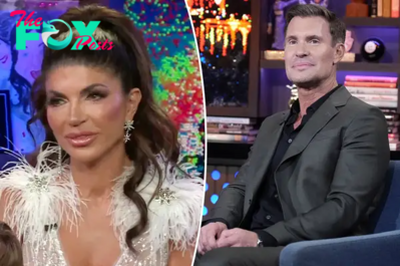
 Celebrity4m ago
Celebrity4m agoTeresa Giudice puts Jeff Lewis on blast for ‘dissing’ her in awkward ‘WWHL’ moment
-

 Celebrity4m ago
Celebrity4m agoMillie Bobby Brown and Jake Bongiovi pack on PDA during honeymoon with his parents, Jon Bon Jovi and Dorothea Hurley
-

 Celebrity4m ago
Celebrity4m agoTravis Kelce rushes from Chiefs teammate’s California wedding to attend Taylor Swift’s Eras Tour concert in Dublin
-
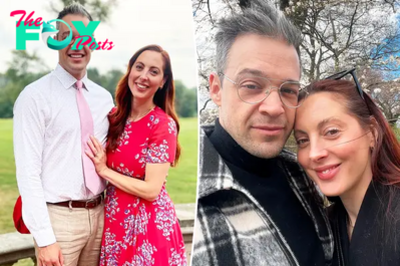
 Celebrity4m ago
Celebrity4m agoSusan Sarandon’s daughter, Eva Amurri, marries chef Ian Hock
-
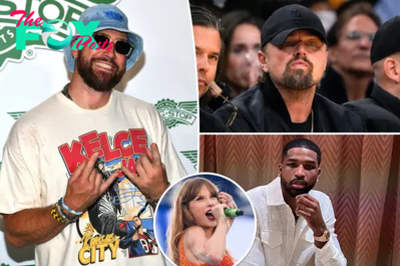
 Celebrity4m ago
Celebrity4m agoTravis Kelce hits up same club as Tristan Thompson, Leonardo DiCaprio while Taylor Swift performs in Ireland
-
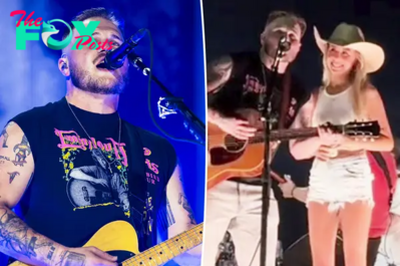
 Celebrity4m ago
Celebrity4m agoZach Bryan brings out ‘Hawk Tuah’ girl to sing ‘Revival’ at Nashville concert
-

 Celebrity4m ago
Celebrity4m agoJennifer Lopez looks tense in LA after Ben Affleck moved things out of their $60M mansion amid marital woes
-
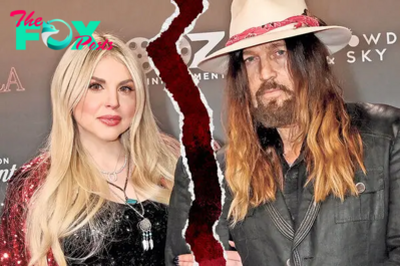
 Celebrity4m ago
Celebrity4m ago‘I was afraid to talk’ and had to ask permission to text: Firerose reveals Billy Ray Cyrus’ ‘strict rules’
